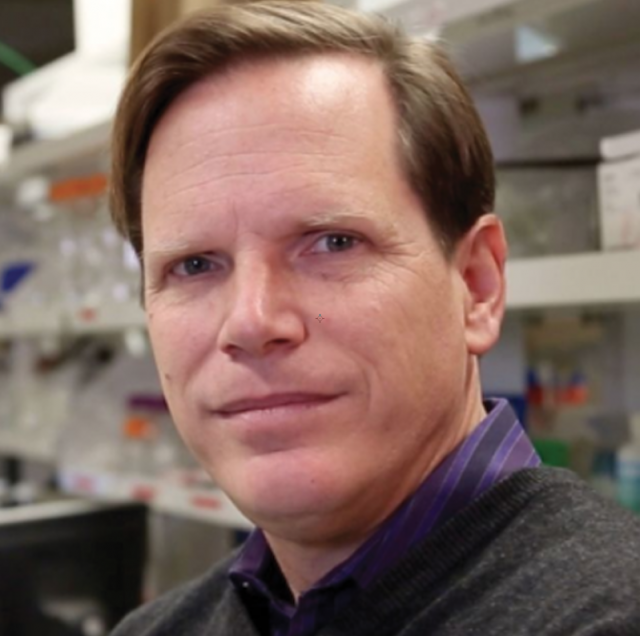Stuck on You: The Physics of Proteins at Surfaces

Online CBE Seminar
All Spring 2020 CBE Seminars will be hosted online via Zoom. Zoom will open after the host has joined at the start of each seminar. You can ask questions through the chat forum and by raising your "hand" and the speaker will call on you. Zoom link here: https://ucsb.zoom.us/j/943297219
Speaker
Kevin Plaxco, Ph.D.
Professor and Vice Chair, Department of Chemistry and Biochemistry;
Biomolecular Science and Engineering;
Mechanical Engineering
Associate Director, Center for Bioengineering
University of California, Santa Barbara
Abstract
Proteins retain function when attached to some surfaces (e.g., the cell membrane) and yet often unfold and inactivate when attached to others (e.g., the artificial surfaces used in many technologies). Our understanding of why these effects occur, however, has been hampered by a lack of quantitative experimental methods by which we can measure the thermodynamics of biomolecule-surface interactions. That is, despite a large body of qualitative literature describing how adsorption alters protein structure, and a large number of empirical studies searching for adsorption-resistant surfaces, quantitative, experimentally testable insights into how and why proteins unfold on some surfaces and not others have proven elusive. In response, we have developed a new experimental (electrochemical) approach for measuring the folding free energy of biomolecules site-specifically attached to well-defined, macroscopic surfaces (i.e., flat at the molecular length scale). Comparison with bulk-solution-phase folding free energies then informs on the thermodynamics of the biomolecule’s interactions with the surface and, in turn, the mechanisms that drive them. Using this novel approach we have, for the first time, accurately measured the free energy with which a simple biomolecule interacts with a set of chemically distinct macroscopic surfaces. In parallel, we have also developed a simple, first-principles theory that recovers our key experimental observations quantitatively, providing molecular details unavailable to experiment alone.
BIO
Kevin Plaxco is a Professor at the University of California, Santa Barbara, with shared appointments between the Department of Chemistry and Biochemistry, the Department of Mechanical Engineering, and the Biomolecular Science and Engineering Graduate Program. Prof. Plaxco also serves as Associate Director of campus’s Center for Bioengineering. Prior to joining UCSB in 1998 Dr. Plaxco received his Ph.D. from Caltech and performed postdoctoral studies at Oxford and the University of Washington. Dr. Plaxco’s research focus is on the physics of biomolecular folding and its engineering applications. A major aim of the group’s applied research is to harness the speed and specificity of folding in the development of sensors, adaptable surfaces, and smart materials. Dr. Plaxco has co-authored more than 200 papers and a dozen patents on protein folding, protein dynamics, and folding-based sensors, and is recognized by Thomson Reuters at one of the most highly cited chemists of the prior decade. He serves on the scientific boards of a half dozen biotechnology firms (several of which are commercializing technologies developed by his group), and has also written a popular science book on Astrobiology.